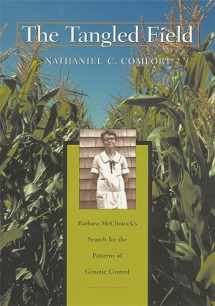
The Tangled Field: Barbara McClintock's Search for the Patterns of Genetic Control
Book details
Summary
Description
This biographical study illuminates one of the most important yet misunderstood figures in the history of science. Barbara McClintock (1902-1992), a geneticist who integrated classical genetics with microscopic observations of the behavior of chromosomes, was regarded as a genius and as an unorthodox, nearly incomprehensible thinker. In 1946, she discovered mobile genetic elements, which she called "controlling elements." Thirty-seven years later, she won a Nobel Prize for this work, becoming the third woman to receive an unshared Nobel in science. Since then, McClintock has become an emblem of feminine scientific thinking and the tragedy of narrow-mindedness and bias in science.
Using McClintock's research notes, newly available correspondence, and dozens of interviews with McClintock and others, Comfort argues that McClintock's work was neither ignored in the 1950s nor wholly accepted two decades later. Nor was McClintock marginalized by scientists; throughout the decades of her alleged rejection, she remained a distinguished figure in her field. Comfort replaces the "McClintock myth" with a new story, rich with implications for our understanding of women in science and scientific creativity.


We would LOVE it if you could help us and other readers by reviewing the book
Book review




